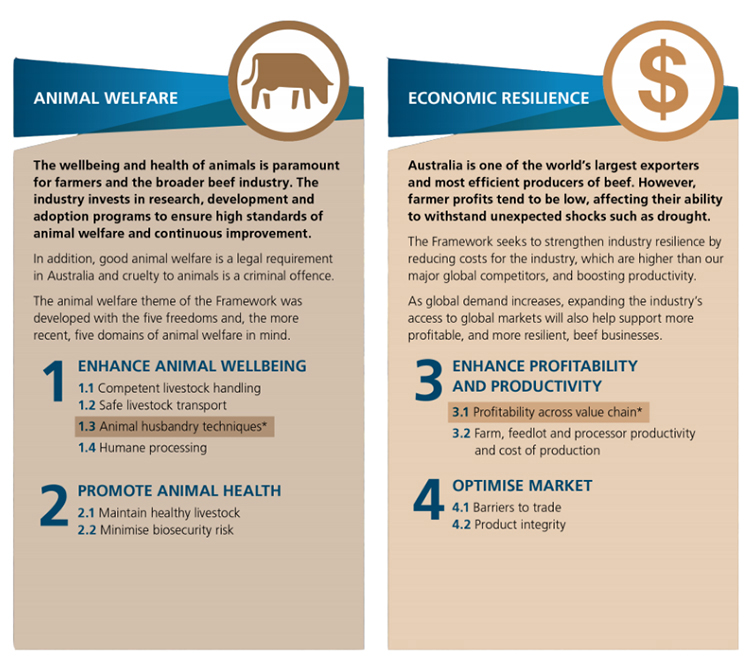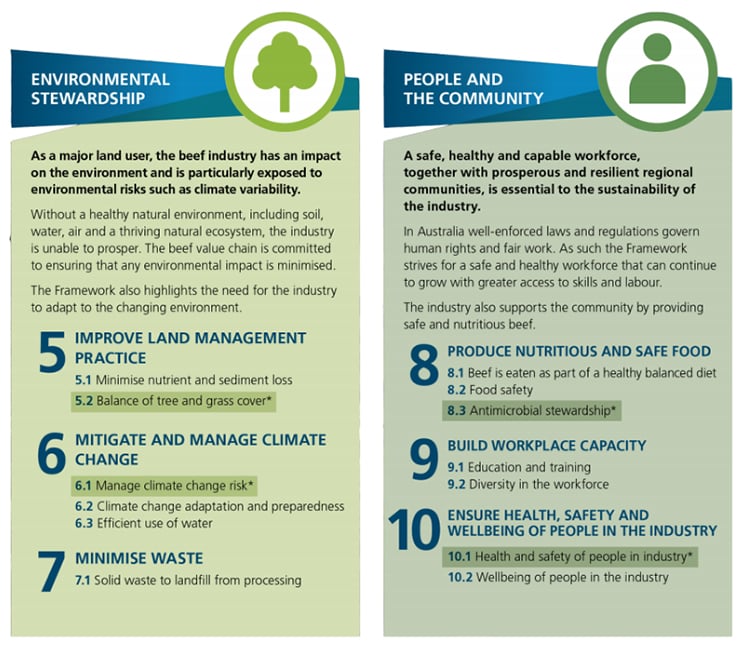ABOUT
The Australian Beef Sustainability Framework (ABSF) was launched in 2017 to create a pathway of best practice for the Australian beef industry and track performance against a series of critical indicators aligned to the themes of best animal care, environmental stewardship, economic resilience and people and the community.
The ongoing development of the ABSF is informed by globally accepted standards that require the application of principles including stakeholder inclusivity and responsiveness and materiality. Priorities and indicators will continue to be responsive and refined through materiality and stakeholder consultation. Since its launch considerable effort has been committed to improving the indicators and collecting evidence to substantiate industry’s sustainability performance and progress.
Currently, the ABSF contains 24 priority issues and 53 indicators to monitor progress against recognised standards and metrics.
The ABSF is used to:
- Advise industry investment for continual improvement in areas most important to customers and stakeholders
- Help protect and grow access to investment and finance by providing evidence of performance and improvement
- Foster constructive relationships with stakeholders to work collaboratively on improvement
- Promote industry transparency and progress to customers and the community.
The ABSF does not:
- Establish or endorse measurement systems at an individual business level
- Provide an accreditation or certification system
- Endorse prescriptive management practice
- Create additional paperwork for individual businesses.
More recently, the ABSF has examined its alignment with international expressions of sustainability, such as the United Nations’ Sustainable Development Goals, to ensure the performance of the industry in Australia is able to be understood by trade partners, potential markets, and overseas stakeholders.
VISION
A thriving Australian beef industry that strives to continuously improve the wellbeing of people, animals and the environment.
SUSTAINABILITY
Sustainability is the production of beef in a manner that is socially, environmentally and economically responsible. We do this through the care of natural resources, people and the community, the health and welfare of animals, and the drive for continuous improvement.

